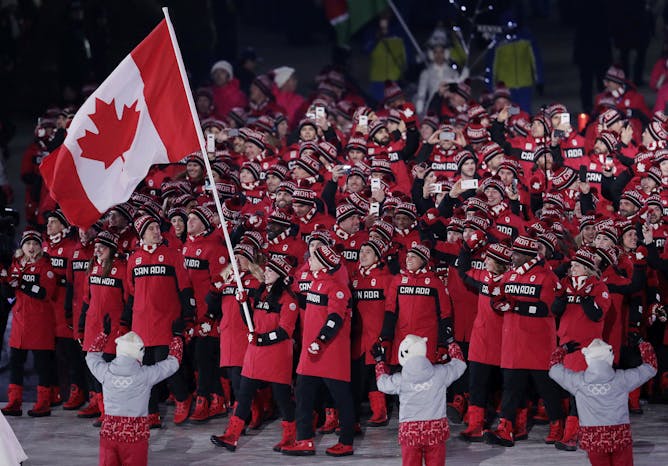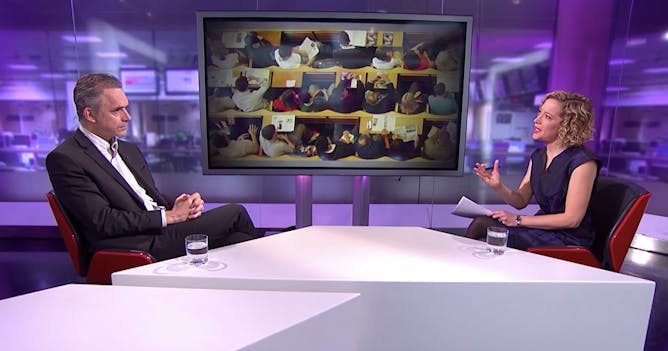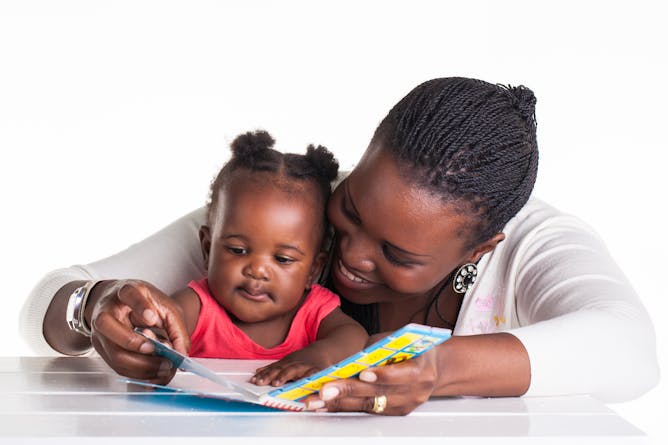|
Today in The Conversation Canada, we have an amazing article from one of our former Olympians. Nicole Forrester of Ryerson University represented Canada as a high jumper at the 2008 Olympics in Beijing and writes that she “still gets chills” thinking back on it. But Prof. Forrester writes that too often, the rights of athletes aren’t always the top priority during the Games due to everything from sponsorship rules to politics. She issues a call to Olympic organizers to continue working hard to ensure all Games are athlete-centred.
Jordan Peterson is now a right-wing darling for his views on everything from transgender people, the #MeToo movement and political correctness on campus. But David Edward Tabachnick of Nippissing University argues that Peterson isn’t really saying anything new – he’s just commandeered social media to his advantage.
If you have young kids, you’ll find our piece from a team of education scholars at the University of Toronto fascinating. They explain that by using simple strategies, parents and teachers can help stimulate linguistic and other cognitive development in their children.
And finally, here’s hoping those kids don’t learn too many lessons from a certain type of bird – in particular, kites and falcons colloquially termed firehawks that intentionally carry burning sticks in their beaks to spread fires. Why? So they can prey upon the insects, rodents and reptiles that flee. George Nicholas of Simon Fraser University has a mind-boggling piece about these clever and cunning animals.
Regards,
|

Tessa Virtue and Scott Moir lead Team Canada into the stadium during the Opening Ceremony of the 2018 Winter Olympics.
THE CANADIAN PRESS/HO-COC, Jason Ransom
Nicole W. Forrester, Ryerson University
It would seem obvious athletes are the most important part of the Olympics. But competing issues, from sponsorship rules to politics, means the rights of athletes aren't always the top priority.
|

The controversial opinions of University of Toronto professor Jordan Peterson have garnered interest around the world and have led to wide media exposure, including this interview with Britain’s Channel 4 News.
Channel 4/YouTube
David Edward Tabachnick, Nipissing University
Jordan Peterson is now a right-wing darling for his views on everything from transgender people, the #MeToo movement and political correctness on campus. But he's not saying anything new.
|

When parents and teachers adapt their own behaviours based on what a child is thinking, they help stimulate that child’s brain development.
(Shutterstock)
Nina Sokolovic, University of Toronto; Jennifer Jenkins, University of Toronto; Michal Perlman, University of Toronto
Using simple strategies, parents and teachers can help stimulate linguistic and other cognitive development in children.
|

A team of researchers in northern Australia have documented kites and falcons, “firehawks,” intentionally carrying burning sticks to spread fire: It is just one example of western science catching up to Indigenous Traditional Knowledge.
James Padolsey/Unsplash
George Nicholas, Simon Fraser University
A double standard exists concerning the acceptance of Traditional Knowledge by practitioners of Western science.
|
Politics
|
-
Heike Schmidt, University of Reading
The writing has been on the wall for Jacob Zuma for years. That it took so long to get rid of him speaks volumes about the ANC.
|
|
Business + Economy
|
-
Richard S. Warr, North Carolina State University
While many market observers blame growing concerns about inflation for the stock market crash, the real culprit may be fears that the economy is about to slow.
|
|
Education
|
-
Bryan Warnick, The Ohio State University; Benjamin A. Johnson, Utah Valley University ; Sam Rocha, University of British Columbia
When school shootings take place, beefed up security is often seen as a solution. Experience shows, however, that school shootings stem from social factors that require a different response.
|
|